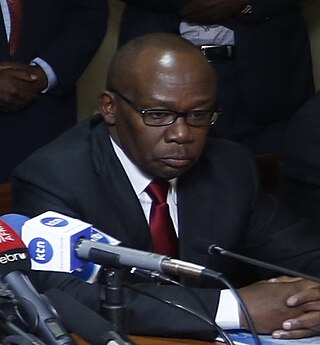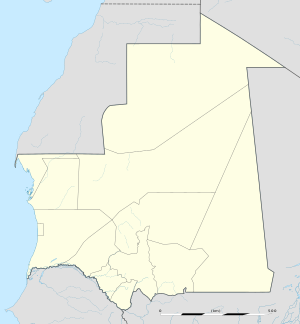
Xenophobia is the fear or dislike of anything which is perceived as being foreign or strange. It is an expression which is based on the perception that a conflict exists between an in-group and an out-group and it may manifest itself in suspicion of one group's activities by members of the other group, a desire to eliminate the presence of the group which is the target of suspicion, and fear of losing a national, ethnic, or racial identity.
Racism in Japan comprises negative attitudes and views on race or ethnicity which are related to each other, are held by various people and groups in Japan, and have been reflected in discriminatory laws, practices and actions at various times in the history of Japan against racial or ethnic groups.
Human rights in Germany enjoy a high level of protection, both in theory and in practice, and are enshrined in the Grundgesetz. The country has ratified most international human rights treaties. Reports from independent organizations such as Amnesty International certify a high level of compliance with human rights, while others, like the researcher Tobias Singelnstein, point out several issues, in particular police brutality and mistreatment of refugees. The 2008 Freedom in the World report by US-funded Freedom House gives Germany a score of "1" for both political rights and civil liberties.

Doudou Diène is a Senegalese jurist. He was United Nations Special Rapporteur on contemporary forms of racism, racial discrimination, xenophobia and related intolerance from 2002–2008.
The year 2001 was declared the International Year of Mobilization against Racism, Racial Discrimination, Xenophobia and Related Intolerance by the United Nations General Assembly.
Benichab is a town and urban commune in the Inchiri Region of southern-central Mauritania.
Mabrouk or El Mabrouk is a village and rural commune in the Hodh Ech Chargui Region of south-eastern Mauritania.
European Commission against Racism and Intolerance (ECRI) is the Council of Europe’s independent human rights monitoring body specialised in combating antisemitism, discrimination, racism, religious intolerance, and xenophobia. It publishes periodic reports on CoE member states and general policy recommendations. The decision to found ECRI was adopted in 1993. The organization became officially active as of March 1994.
Human rights in Estonia are acknowledgedas being generally respected by the government. Nevertheless, there are concerns in some areas, such as detention conditions, excessive police use of force, and child abuse. Estonia has been classified as a flawed democracy, with moderate privacy and human development in Europe. Individuals are guaranteed on paper the basic rights under the constitution, legislative acts, and treaties relating to human rights ratified by the Estonian government. As of 2023, Estonia was ranked 8th in the world by press freedoms.

The Yogyakarta Principles is a document about human rights in the areas of sexual orientation and gender identity that was published as the outcome of an international meeting of human rights groups in Yogyakarta, Indonesia, in November 2006. The principles were supplemented and expanded in 2017 to include new grounds of gender expression and sex characteristics and a number of new principles. However, the Principles have never been accepted by the United Nations (UN) and the attempt to make gender identity and sexual orientation new categories of non-discrimination has been repeatedly rejected by the General Assembly, the UN Human Rights Council and other UN bodies.
Defamation of religion is an issue that was repeatedly addressed by some member states of the United Nations (UN) from 1999 until 2010. Several non-binding resolutions were voted on and accepted by the UN condemning "defamation of religion". The motions, sponsored on behalf of the Organization of the Islamic Conference (OIC), now known as the Organisation of Islamic Cooperation, sought to prohibit expression that would "fuel discrimination, extremism and misperception leading to polarization and fragmentation with dangerous unintended and unforeseen consequences". Religious groups, human rights activists, free-speech activists, and several countries in the West condemned the resolutions arguing they amounted to an international blasphemy law. Critics of the resolutions, including human rights groups, argued that they were used to politically strengthen domestic anti-blasphemy and religious defamation laws, which are used to imprison journalists, students and other peaceful political dissidents.
Racism in German history is inextricably linked to the Herero and Namaqua genocide in colonial times. Racism reached its peak during the Nazi regime which eventually led to a program of systematic state-sponsored murder known as The Holocaust. According to reports by the European Commission, milder forms of racism are still present in parts of German society. Currently the racism has been mainly directed towards Asian and African countries by both the state and through the citizens which includes being impolite and trying to interfere in internal matters of African countries by the diplomats.
Racism in Lithuania appears mainly in the form of negative attitudes and actions towards people who are not considered ethnically Lithuanian, mainly started and spread throughout themely dangerous. Especially if the foreigner is of different race. According to the data provided by the Centre for Ethnic Studies, Roma people, Chechens, refugees and Muslims are regarded with disfavour most of all in Lithuania. Anti-Polish sentiments are also very strong in Lithuania. However, recent research showed that Lithuanians themselves claim to be tolerant. The problem of racism is still not widely admitted, although the Government itself has put some effort to reduce xenophobia in Lithuania. Since the mid-2000s the Law on Equal Opportunities forbids any direct or indirect discrimination on the basis of racial or ethnic origin, gender, religion, nationality or belonging to any other group.
Expression of racism in Latvia include racist discourse by politicians and in the media, as well as racially motivated attacks. European Commission against Racism and Intolerance notes some progress made in 2002–2007, mentioning also that a number of its earlier recommendations are not implemented or are only partially implemented. The UN Special Rapporteur on contemporary forms of racism, racial discrimination, xenophobia and related intolerance highlight three generally vulnerable groups and communities: ethnic Russians who immigrated to Latvia under USSR, the Roma community and recent non-European migrants. Besides, he notes a dissonance between "opinion expressed by most State institutions who view racism and discrimination as rare and isolated cases, and the views of civil society, who expressed serious concern regarding the structural nature of these problems".

Githu Muigai is a Kenyan lawyer who was the Attorney General of the Republic of Kenya until February 13, 2018, when he resigned. He holds a bachelor's degree in law from the University of Nairobi, a master's degree in international law from Columbia University School of Law, and was awarded a doctoral degree in law in November 2002. Prior to becoming Attorney General Githu Muigai served in the defunct Constitution of Kenya Review Commission and at the United Nations as Special Rapporteur on contemporary forms of racism, racial discrimination, xenophobia and related intolerance.
The right to sexuality incorporates the right to express one's sexuality and to be free from discrimination on the grounds of sexual orientation. Specifically, it relates to the human rights of people of diverse sexual orientations, including lesbian, gay, bisexual and transgender (LGBT) people, and the protection of those rights, although it is equally applicable to heterosexuality. The right to sexuality and freedom from discrimination on the grounds of sexual orientation is based on the universality of human rights and the inalienable nature of rights belonging to every person by virtue of being human.
The Republic of Uruguay is located in South America, between Argentina, Brazil and the South Atlantic Ocean, with a population of 3,332,972. Uruguay gained independence and sovereignty from Spain in 1828 and has full control over its internal and external affairs. From 1973 to 1985 Uruguay was governed by a civil-military dictatorship which committed numerous human rights abuses.

Intersex people in Argentina have no recognition of their rights to physical integrity and bodily autonomy, and no specific protections from discrimination on the basis of sex characteristics. Cases also exist of children being denied access to birth certificates without their parents consenting to medical interventions. The National Institute Against Discrimination, Xenophobia and Racism and civil society organizations such as Justicia Intersex have called for the prohibition of unnecessary medical interventions and access to redress.

E. Tendayi Achiume is the Alicia Miñana Professor of Law and former Faculty Director of the Promise Institute for Human Rights at the University of California, Los Angeles. She served as the United Nations special rapporteur on Racism, Racial Discrimination, Xenophobia and Related Intolerance from her appointment in September 2017 until November 2022. She was the first woman appointed to this position since its creation in 1993.
Mutuma is a surname. Notable people with the surname include:






